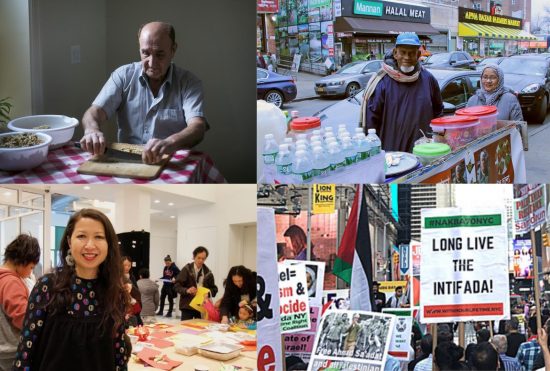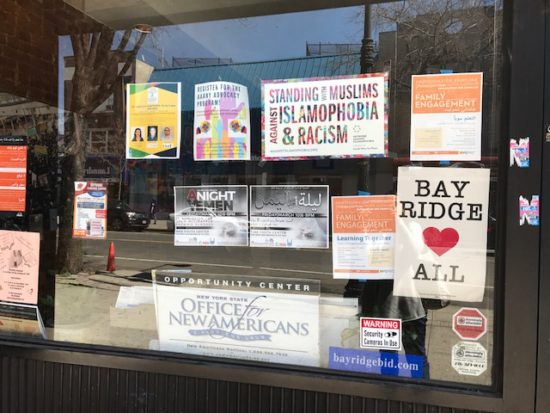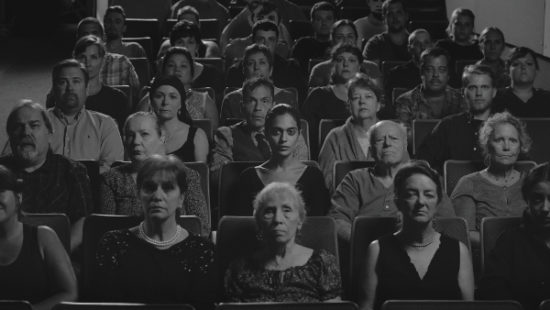A Yemeni American activist’s take on the NYC mayoral race, political activity within the Yemeni community, and striking out on her own
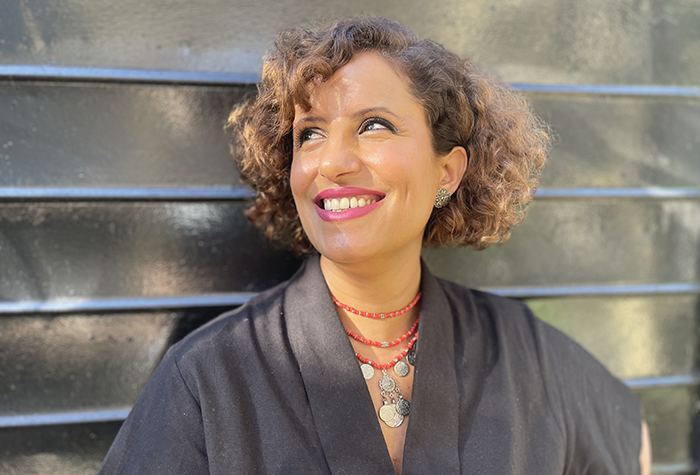
June 17, 2021
On the way out of Yemen Cafe in Brooklyn’s Bay Ridge neighborhood, Rabyaah Al-Thaibani spotted a man leaning in the doorframe of an apartment building, wearing a sweatshirt with the words “Yemen We Go Hard,” across the front. When she saw it, her eyes widened.
“I love that,” she told him. “We gotta get a picture of you in that.” She glanced behind her at mayoral candidate Andrew Yang, who was nodding along to the words of a small business owner with whom he was speaking.
It was a mild afternoon in mid-February, and the veteran community organizer was leading Yang on a walking tour of Bay Ridge. The event was less a survey of the neighborhood and more a walk down Fifth Avenue’s industrial corridor, a stretch of some 30-odd blocks dominated by Arab and Muslim-owned businesses. Al-Thaibani had pre-selected some of the strip’s most frequented establishments to visit: the famous Yemeni restaurant Yemen Cafe; the large Palestinian-owned grocery store Balady; and the oldest Italian restaurant on the strip, Gino’s.
This version of a Bay Ridge tour, several avenues up from the old-money mansions dotting the waterfront on Shore Road, stood in stark contrast to the image most New Yorkers have of the neighborhood. Rather than visit a buttoned-up Republican enclave, Yang had stepped out of his Black SUV onto a block teeming with the kind of diversity that the city is known for, a place where the evidence of immigrant hustle crowds storefronts and spills onto the street.
Draped in black peacoats and walking elbow to elbow down the sidewalk together, Yang and Al-Thaibani made an amusing pair: the mayoral candidate exuding the cautious energy of a novice politician, pausing to choose his words the way one might pluck roses from a thorny bush; and the community organizer, whose carefree, unbroken speech resembled more of a bubbling brook, interrupted only by bouts of high-pitched laughter.
Most of the people who showed up for the tour came to hear about Yang’s plans to support New York’s small businesses, of which Arab merchants are a large contingency. I came to meet Al-Thaibani. I was aware of her long presence in the city’s Arab and Muslim organizing spaces, dating back to the weeks following 9/11. More recently, she has been involved in campaigns to elect the Palestinian pastor Khader El-Yateem to City Council and Democratic politician Max Rose to Congress.
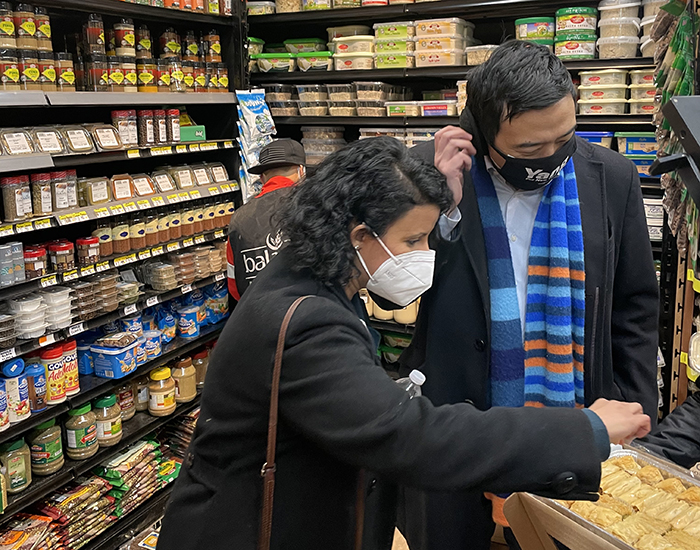
A vocal opponent of the Muslim ban, Al-Thaibani helped plan the 2017 Yemeni Bodega Boycott, one of the largest protests of Arab-Americans in the city’s recent history.
The boycott, organized in response to Donald Trump’s announcement of the travel ban, was an important moment for a community that historically has not played a major role in city politics. On that gray February day, thousands of Yemeni bodega owners closed their shops and poured into the streets in front of Brooklyn Borough Hall, demanding an end to the new policy.
The community has been remarkably engaged ever since, and Al-Thaibani is one of the individuals leading the charge. She is not the leader you might expect. She does not shy away from posting photos of her evening glass of wine on social media or reminiscing about a time when her mother could walk the streets of Yemen without wearing a headscarf. I wondered how such an unconventional figure had managed to secure a prominent role organizing the Yemeni community.
“She’s a person that’s likeable,” explained Abdul Mubarez, the president of the Yemeni American Merchants Association, a city nonprofit that advocates on behalf of Yemeni small business owners. “Even though sometimes she disagrees with the traditional factors that we came from, she seems to work around that.”
Mubarez said that the community needs an organizer like Al-Thaibani, who reaches out to politicians and advocates for the interests of the Yemeni and Muslim communities as a whole.
Perhaps the best example of this is her decision to offer Yang a tour of Bay Ridge in the first place. It remains to be seen whether Yang’s proposed policies could actually benefit Yemeni New Yorkers in the long term (in fact, some experts have warned that their funding would eliminate important social welfare programs). However, Al-Thaibani’s belief in them led her to break with many of the individuals she has spent the past five years organizing with.
Early this year, as the city’s non-profit sector and left-leaning PACs rallied behind city comptroller and career politician Scott Stringer, she had her eye on Yang. In his lack of political experience — an attribute often cited as his greatest weakness — she saw potential. A greener politician, she reasoned, would be less invested in maintaining the status quo, and easier to pressure into passing progressive policies. Such a candidate might also be willing to consider the needs of a community that the city’s politicians have long overlooked.
As the tour took off, Al-Thaibani’s concern over this last point became abundantly clear.
“It’s the best food in the world,” she told Yang, as the owner of Yemen Cafe placed a stack of pillowy flatbread and a bubbling clay pot of lamb stew before him. “But I guess I’m biased because I’m Yemeni,” she added, laughing.
Al-Thaibani was careful to introduce Yang to every Yemeni business owner and community organizer she invited to the event — there were many — showering each of them with complements as she did. When a disgruntled speculator began raising his voice, accusing Yang of abandoning the city for his upstate home during the worst months of the pandemic, Al-Thaibani’s smile snapped off.
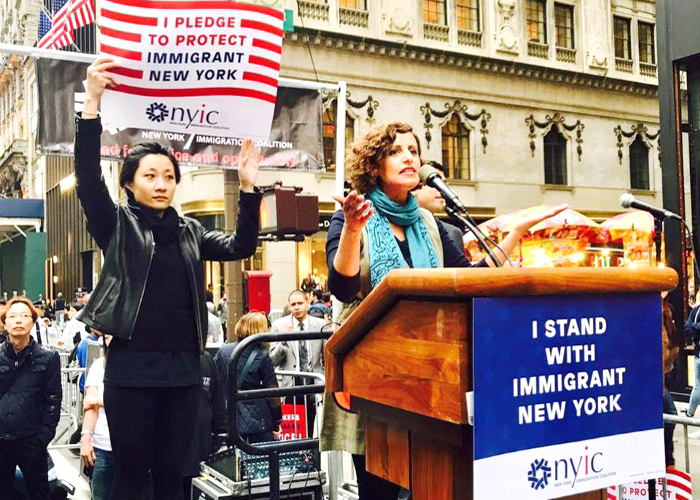
“Respect the Yemeni community,” she hissed at him repeatedly until the restaurant owner intervened to ask the man to leave.
This reaction was not, Al-Thaibani later explained, due to her refusal to hear criticism of Yang as a political candidate (she emphasized that she had turned down offers to work for his campaign, preferring to keep her independence and ability to critique all candidates). Nonetheless, when he reached out to request a tour of Bay Ridge, Yang was the first political front-runner to ever take an interest in meeting Yemenis on the campaign trail. Al-Thaibani considered the event a rare opportunity for community members to have their voices heard.
In her mind, this was their time.
□ □ □ □ □
Al-Thaibani developed a strong compass for social justice issues early in life. When she emigrated with her family to Brooklyn from Yemen at the age of 7, she often had to translate for her parents as they navigated American institutions for the first time.
In those early years, the family did not have much. Her father secured a union job doing maintenance work at a building in Midtown, a position he would hold for over 30 years. The job earned him enough to support the family and save up to eventually pay a mortgage, but the work could be degrading. Al-Thaibani recalled accompanying her father to the New York Human Rights Commission to file a complaint against his boss for hurling racial slurs at him while he was on the clock.
That was in the early 1990s during the First Gulf War, a time when events abroad were slowly beginning to shape the experiences of Arabs living in America. Al-Thaibani recounted an afternoon when she went with her mother to the grocery store to buy some milk. When a woman near the cash register spotted her mother, who wears hijab, she began shaking a copy of the New York Post at her and raising her voice. The magazine cover story was about the Gulf War. Al-Thabani cannot recall the woman’s precise words, but she can still vividly picture what followed them.
“It happened so fast. She took the newspaper, and she hit my mother in the face with it. The grocery store guy didn’t do anything, nobody did anything. It was so horrible,” she said.
The slurs and epithets weren’t easy to take, but what really radicalized Al-Thaibani was a trip to the ER. She was 12 years old at the time, and her mother was having a miscarriage. Medical staff left her unattended for hours as she hemorrhaged and grew weak.
“I was there and I was trying to advocate for my mom… I started saying ‘My mom’s gonna die, my mom’s gonna die,’” she recalled. She finally managed to get the attention of a nurse who, after rummaging around the hospital room, asked whether her mother had insurance. “And something in my head just switched,” Al-Thaibani said. Her mother did have insurance, through her husband’s union contract, but as a child, she could not understand what the question had to do with her mother’s care.
Al-Thaibani called the experience pivotal, but said that she did not process it until years later when she was forced to engage with the political system head-on. In 2001, she was recently married, balancing her schoolwork with a full-time job at the Arab-American Family Support Center. Although she had always been interested in foreign policy, she did not feel particularly inclined towards activism.
A week after 9/11, she got a call from her boss asking her to organize a candlelight vigil on the Brooklyn Promenade for victims of the attacks. She would look back on the vigil as the first community engagement event she ever planned. In the permit application for the event, Al-Thaibani told the Brooklyn fire department that around 300 people would show up. She undershot by hundreds. As New Yorkers pulled up in droves, followed by journalists and television crews, she grew emotional. The following day, she got a call from some family members living in Qatar.
“Rabyaah, are you OK?” they asked her. “We saw you crying on Al Jazeera.”
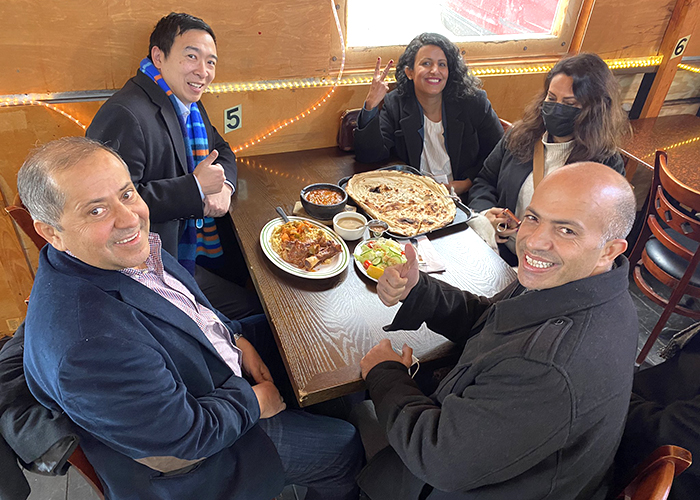
Al-Thaibani’s life began to pulse with a new purpose. Arabs and Muslims were disappearing off the streets of New York City, and the phones at her office were ringing incessantly. They were vanishing without a trace, thrown into interrogation rooms and detention centers despite the lack of evidence to suggest their culpability. Ultimately, over 700 Arab and Muslim Americans in New York City alone were temporarily detained in the months following the attacks.
“I remember one family in particular, [the father] was a janitor,” Al-Thaibani said. “The principal of a school heard him speaking Arabic and she called the FBI and they put him away. They put him away for like eight months.”
The insidious nature of American prejudice was rearing its head. Al-Thaibani remembered her childhood — her father’s taunting employer, her mother left to bleed in the hospital room — and began fitting the pieces together.
“September 11 was definitely a defining moment for me, but not just for me,” she said. “Linda [Sarsour] and all these young Arab women who grew up in New York City and are active politically — we were the byproducts of 9/11.”
Around that time, out of fear for their safety, Al-Thaibani’s father told his wife and daughters to stop donning the hijab. She removed it temporarily, and soon afterwards, for good. I asked her if she was wearing a hijab at the vigil she organized on the Brooklyn Promenade.
“Yeah, absolutely,” she paused before clarifying her reasoning. “I’m a Muslim, fuck you guys.”
□ □ □ □ □
While it is difficult to steer Al Thaibani away from local issues now, her political life was once dominated by foreign policy. She worked a slate of jobs at different New York-based non-profits, but her heart was in events across the world: the Iraq War, the invasion of Afghanistan, the Arab Spring.
“There was always something happening where as much as I’m here, living in this world, we could not ever disconnect ourselves from the reality of American foreign policy on Arab land,” she explained.
Al-Thaibani’s activism turned local in 2017 when President Trump announced the travel ban. Scores of Yemenis have settled in New York since the onset of Yemen’s civil war in 2011. Compared to the city’s more established Lebanese and Palestinian populations, the younger immigrant community was more heavily wounded by the ban, which splintered hundreds of families overnight, and spawned an unprecedented new level of civic engagement.
“We [Yemenis] were a lot, but we were not active… They were like, how do you call it, the quiet before the storm. They were not participating. Nothing really jolted them to action until that defining moment when they all closed their shops,” she said, referencing the Bodega Boycott.
That same year, Al-Thaibani got a call that altered the course of her activism. She had recently moved with her kids to Bay Ridge, and community organizer Widad Hassan wanted to know whether she could help get Palestinian pastor Khader El-Yatim (also known as Father K) elected to City Council. She was excited by the challenge of the campaign: despite the substantial population of Arabs in Bay Ridge, none had ever represented the neighborhood in an elected position. She got to work “creating buzz” — galvanizing members of the community, particularly Yemenis, to go to the polls and vote. El-Yatim ultimately lost the election to incumbent councilmember Justin Brannan, but the experience permanently shifted Al-Thaibani’s interests towards local elections.
“I’d never [before] been in a district where it felt like this is a good fight,” she said, explaining the change. She called her previous neighborhood of Downtown Brooklyn a “liberal bubble” where the results of political races are typically unsurprising. Southern Brooklyn, on the other hand, is a place in flux. As the population of Arabs in Bay Ridge continues to climb, the neighborhood’s long-time Republican establishment is repeatedly being put to the test.
After the City Council race, Al-Thaibani got involved with the campaign to elect democratic politician Max Rose to New York’s 11th congressional district. The district is a peculiar one: it includes the South Brooklyn neighborhoods of Bay Ridge, Dyker Heights, and Bath Beach — and all of Staten Island. It has been represented by conservative politicians for generations. But in 2018, Democrat Max Rose won in an upset, and flipped the district. Al-Thaibani credits the Yemeni community with the flip.
“The Republicans have been in power for so long because they [non-Yemeni Arabs in South Brooklyn] have been selling out for so fucking long,” she said. “When the Yemenis came and settled [in Bay Ridge], we flipped this district. That’s a fact.” She paused, taking in her own words. “That’s a fact. The fact that Southern Brooklyn, that Bay Ridge, the stronghold for Arab Americans has been for decades under the control of Republicans until the Yemenis came and flipped it — that’s data for you.”
But Max Rose lost the 2020 Congressional election, and the district is currently represented by the ultra-conservative Trump supporter, Nicole Malliotakis.
“Our turnout was higher than ever,” she reasoned. “It was Staten Island that showed up more, and that’s why we lost.”
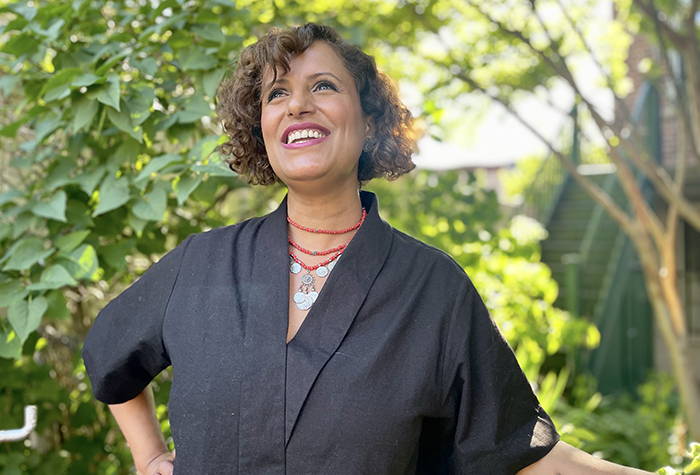
As her involvement in local politics has deepened, Al-Thaibani has grown more willing to separate her work in the city from events in the Middle East. Although Max Rose was a vocal opponent of the Muslim ban, he took a conservative position on the state of Israel’s treatment of Palestinians — a topic of great concern to the Arab American community.
Andrew Yang has proven to be no different. When he posted a pro-Israel tweet during the recent bombing campaign of Gaza, Al-Thaibani said she reached out to his team in frustration. The candidate followed up several days later, calling his prior remarks “overly simplistic.” That was good enough for Al-Thaibani. She said that it is unfortunately common for city politicians to throw Palestinians under the bus for their political gain.
“I personally believe that it’s nice to know the moral positions [of local politicians] on things that they have zero control over, but that should not be a determining factor,” she said. “Why am I not demanding that Andrew Yang take a position on Yemen?”
Al-Thaibani emphasized that her political positions are informed by her conversations with ordinary Yemeni New Yorkers who are trying to build lives for themselves and their families. She contrasts this approach with that of the “nonprofit industrial complex” and the “entrenched political left” — groups who she sees as supporting Stringer and former-NYPD officer Eric Adams because they benefit from the status quo.
“They’ve been in power for eight years. This is why they want to keep an establishmentist,” she said. “They would rather keep their power within the city government than have a real progressive mayor.”
□ □ □ □ □
When she described the level of civic engagement in New York’s Yemeni community, Al-Thaibani became emotional.
“Sometimes it’s so surreal. I can’t believe the community is this active, this engaged,” she said, her voice wavering. “My fear is that I’ll wake up one day and they’re not doing anything anymore.”
Al-Thaibani has noticed that since 2017, the issues most pressing to Yemeni New Yorkers have shifted from foreign policy and immigration to economics. The pandemic hit the community’s small businessmen hard, and many are still struggling to get back on their feet.
That’s why she decided to throw her support behind Yang. She believes that his emphasis on “bread and butter issues” will be good for the Yemeni community. But as she described the qualities that attract her to his candidacy, another line of reasoning became clear, one that speaks to the tendency of all individuals to support the politicians that they identify with most.
“He may not be so savvy [but] you know there’s one thing that connects me to him,” she said. “They always make fun of him on Twitter because he always says the wrong things at the wrong time. I’m a lot like that. I always say the awkward things at the wrong time and it’s ok!”
She referenced the infamous bodega-appreciation video that he recorded at an establishment that more closely resembled a grocery store.
“The bodega was a little advanced!” Al-Thaibani said, exploding into giggles. “That’s why you’re all upset? You know, this poor Yemeni put every saving he had into making this bodega look so pretty.”
She said that after the tweet went viral, Yang sent her a text. Her eyes gleamed as she recalled his brief words: “For you and yours.”

